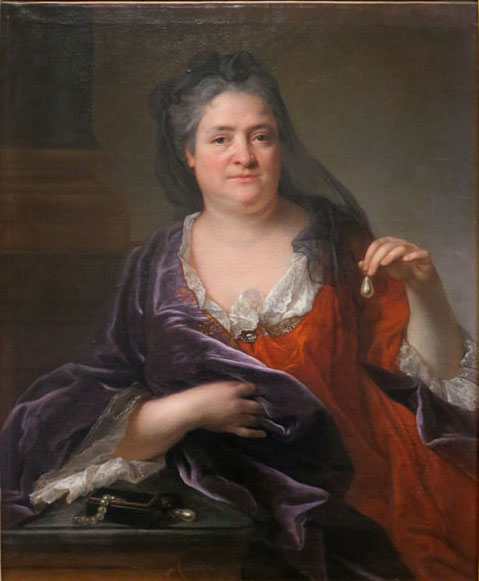Once Elizabeth Charlotte of the Palatinate arrived in France she was confronted with a way of life quiet different than that she had left behind. The new Duchesse d'Orléans had grown up in the lush hills surrounding Heidelberg and had enjoyed a solid health which the French courtiers attributed to her German heritage (the Germans being considered of a generally robust health).
The Princess Palatine would soon encounter the standard bouts of illness that were common at the age - both herself and her family were no more immune than anyone else. However, not long after her arrival Elizabeth Charlotte's initial distrust of French doctors grew into a down-right antipathy. She made no attempt at hiding that she was convinced that the court doctors often had no idea what they were doing - which was technically correct in the majority of the cases. Likewise, she was convinced that their methods of "treating" their patients more often than not had the adverse effect.
For one instance when the Duchesse de Bourgogne - then Dauphine - fell ill the doctors initially declared that the Dauphine would recover. Madame agreed but then the doctors allowed the Dauphine to get out of bed while still ravaged by measles; once that resulted in a set-back they bled her foot. Madame was convinced that this is what caused the Dauphine's ultimate demise.
 |
| Elizabeth Charlotte |
While Madame was assured that the doctors knew little she was not untainted by her time's perceptions of medical treatments. Elizabeth Charlotte was convinced that the Duchesse de Berri - who died at just 23 years old - had caused her own death by "eating melons and figs and drinking milk in secret". In reality, the Duchesse de Berri's health had been severely weakened from a disastrous childbirth and she was finally carried off by a violent cold.
Her attitude towards doctors was perfectly described in a letter :
"... I trouble myself very little with the impatience of doctors. As I have positively said to them before, they need not demand any blind obedience from me; they may speak their minds but need not be vexed if I do not always follow their advice. My health, my life is my own and I will govern it as I see fit. The doctors must talk about their art to make themselves appear necessary but I do not find them more learned than nature left to itself... the doctors can hardly cure illness, how can they prevent it?"
One particular point that Elizabeth Charlotte detested was the art of bleeding. Bleeding in itself was a fundamental part of the medical practice of the time but it hardly ever did much good. Madame herself was assured that she would have to be truly ill indeed to allow herself to be bled.
Fresh air was among the best cures for many minor ails; this was a cornerstone of the Princess Palatine's beliefs. She attributed her own perfect childhood health to this very aspect of the German countryside and quickly pointed out the ill effects that the French overuse of perfume had. The Duchesse de Berri was not unlike many of her contemporaries when it came to filling her apartments with strong perfumes. According to Madame this practice caused the Duchesse to suffer fits of fever and depression.
Madame's attitude towards her medical staff did not improve over the years. The only thing that did was her willingness to put up a direct fight. Towards the very end of her life she confided in a friend that she did as the doctor bid but only in order to be left alone - her recovery or demise would be up to god. Clearly, her many years in France did not reconcile her to her adopted country's doctors.

Most interesting view
ReplyDeleteI find this period of history quite interesting
ReplyDelete